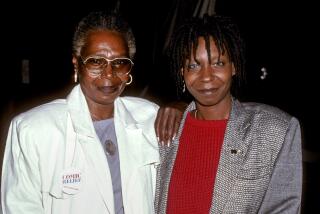An Irishman’s Brutal Sojourn in London
The road to hell may or may not be paved with good intentions, but Ollie Ewing, the protagonist of Dermot Healy’s latest novel, takes to heart a very similar notion on returning to his native Sligo, Ireland, after laboring at construction sites in England. An acquaintance in a pub tells Ollie that “sin” is etymologically linked in several European languages with the verb “to be.” In other words, “to sin is to exist.”
Ollie believes this. In England, his best friend, Marty Kilgallon, was murdered, presumably by gangsters running protection rackets to exploit foreign workers. Then his younger brother, Redmond, was burned to death. Ollie’s father won’t forgive him: “He was your responsibility,” the father says. “Tell me this, do you ever take anything seriously?”
Ollie does. He takes it all so seriously that he is driven to the edge of madness. As he drinks and tramps the streets of Sligo and works at odd jobs, accusing voices echo in his head. Familiar sights and people aren’t enough to revive his sense of innocence. When Ollie and a female friend go to England to attempt a reconciliation with his father--even though the attempt more or less succeeds--the voices grow louder, the memories more piercing.
Healy (“A Goat’s Song,” “The Bend for Home”) has inherited from the likes of Joyce and Beckett and Roddy Doyle the Irish gift for tragicomedy, for depicting vivid life in the midst of all that brutalizes and discounts life. He introduces us gently to Ollie’s predicament, in prose that would read like a snap if we didn’t pause and admire his dialogue, the deft sketching-in of minor characters, the flashes of poetry and wit.
Flying to England for the first time, for example, Ollie looked out the plane window and saw “a river gleaming like a seam of silver in the sunshine somewhere in Wales, then little pools of mercury, and at last a city and this little cloud, all on its own, hanging like a dust-mote. The plane began jibbering, we fell sideways and the wing on my side cocked up like the leg of a dog. We’d struck an air-pocket. Dearie me, someone said.”
A trained carpenter, Ollie was put instead to the unskilled work of tearing down walls. He enjoyed sharing a trailer with Marty, cooking, listening to opera music, pub-crawling and exploring London. Marty’s fear of the racketeers seemed paranoid. But then Marty’s acid-eaten body was found in the back of a truck, and the paranoia found a new home in Ollie. Somebody spiked his tea with speed. He saw, or thought he saw, a rifleman on a rooftop, a tank-like vehicle that sprays broken glass.
The only clue to Marty’s murder is that he planned to work for a boss named “Silver John” Reynolds. Ollie questions Reynolds, who denies any involvement. When Ollie persists, Reynolds has his sidekick, “Scots Bob” MacVeigh, beat Ollie up. Then he offers Ollie a job, and Ollie, for reasons he can’t explain, takes it. Redmond, too, begins to work on Reynolds’ gang, and MacVeigh throws burning gasoline on him after being evicted from a party at Ollie’s flat.
Chief among the inquisitors in Ollie’s brain is MacVeigh’s defense attorney, who seizes on every odd statement, every instance of drug or alcohol use, every irrational act on Ollie’s part to shift the blame to him. These standard courtroom tactics don’t convince the jury--MacVeigh goes to prison for manslaughter--but they convince Ollie. The lawyer’s voice is as authoritative as God’s. Just being himself, Ollie thinks, and having “sudden” things happen to him, is enough to make him guilty.
More to Read
Sign up for our Book Club newsletter
Get the latest news, events and more from the Los Angeles Times Book Club, and help us get L.A. reading and talking.
You may occasionally receive promotional content from the Los Angeles Times.






